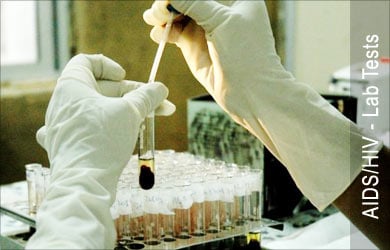About
HIV test is a simple blood test to detect the presence of HIV antibodies for making a diagnosis of HIV infections. For accurate test results, you have to test your blood 3-4 months for the presence of antibodies.
It is important to begin treatment of HIV infection as early as possible as it can improve health outcomes by retarding the progress of the disease. Further, proper screening and diagnosis of HIV can help victims change risky behaviors and adopt healthy ones.

The ELISA method of screening is employed to detect antibodies to the HIV virus. If the results are positive, The ELISA test is again repeated.
Subsequently, a Western Blot test is performed to confirm the results. The Western Blot test which can be performed on urine, blood or an oral sample, are a series of tests done rapidly with results produced in 20 minutes.
If the test results for HIV antibodies are positive on both ELISA and the Western Blot test, then the person is confirmed to be infected with HIV.
It is important to begin treatment of HIV infection as early as possible as it can improve health outcomes by retarding the progress of the disease. Further, proper screening and diagnosis of HIV can help victims change risky behaviors and adopt healthy ones.












